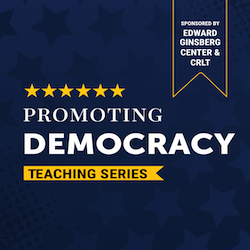The final weeks of the term can be an especially valuable time to engage students in reflective thinking about their learning. Often teachers use the end of the term as a time to review content, but you can also use this time of final projects and exam preparation to prompt student "metacognition," or critical thinking about their own learning processes. When students pay attention to how they learn best and deliberately assess their own strengths and weaknesses, they can more intentionally and successfully plan their future approaches to learning. By helping students develop such metacognitive habits, you can help solidify their learning in your course, increase their ability to make use of it in future courses, and enhance their capacities as self-directed learners.
What are some effective ways to prompt metacognition in the final weeks of the term? Specific strategies include:

- Invite students to analyze one of their first assessments of the term, considering how they would approach the assignment or test differently now. What knowledge, skills, or habits of mind they have developed that were not evident in the early part of the semester?
- Review your syllabus, reminding students of your learning objectives for each unit or assignment. Have them write a 'minute paper' assessing their mastery of each goal.
- Collect advice from current students for future students who take the course. What were their most and least effective study strategies or writing practices? What were the most challenging concepts to learn and how did they (or could they have) overcome those challenges?
Such activities not only help students solidify, assess, and plan their learning--they can also help you understand in greater detail what students have gained from your course. For additional ideas about teaching metacognition (including bibliographies of research about how it improves learning), check out these resources:
- Sweetland Center for Writing's white paper on metacognition
- Overview and strategies for "Putting Metacognition into Practice" from Vanderbilt University's Center for Teaching
- Slide presentation on "Teaching Metacognition" by Marsha C. Lovett, a leading researcher into the importance of metacognition for learning
- Brief article on self-regulated learning by Linda Nilson that draws from her book, Creating Self-Regulated Learning: Strategies for Strengthening Students’ Self-Awareness and Learning Skills (Stylus, 2013)
- Log in to post comments
- 753 views






